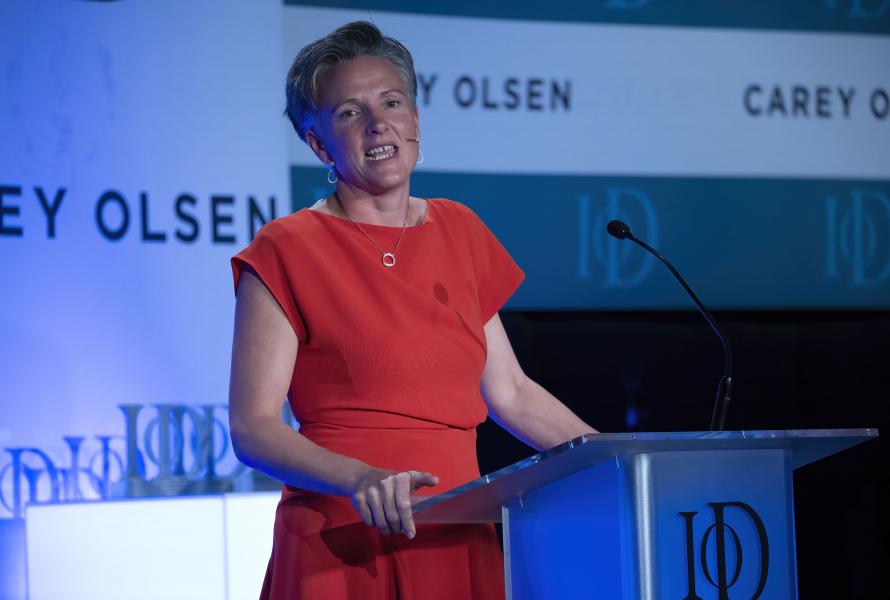
At the IoD Guernsey 2021 Convention, several local and off-island keynote speakers scrutinised how Guernsey can make a big impact on the global issue of climate change. Our speakers analysed this in the context of Simon Anholt’s Nation Brand model.
The Nation Brand Index ranks a jurisdiction’s attractiveness and success based on six key areas: people, tourism, exports, governance, investment and heritage.
Sally Rochester examined the governance topic alongside Dr Matthew Agarwala, one of our visiting speakers and leading environmental economist at the Bennett Institute for Public Policy at Cambridge University. Sally also spoke to Silvana Centty, Associate Director from The Carbon Trust, and Veronica Poole, Corporate Reporting Lead from Deloitte.

The key takeaways and discussion points included:
- For Guernsey to show it is competent and fair in relation to our net zero commitment, the government work plan and the green finance initiative, we must continue to work hard to close the trust gap.
- As a nation we differentiate ourselves through strong governance so we should build trust by committing to measuring and reporting the impact of our carbon and broader social actions.
- Being a conscious consumer is a minefield; the speakers stressed that it is no easy feat with many variables and considerations and, in many instances, little in the way of transparent information.
- Sally explained that every organisation has a ‘sustainability superpower’. Organisations can use this to define the role that they can play in building a more sustainable future. Businesses need to introduce it into their business strategy and measure the impact it has – positive or negative.
- Guernsey might be a small island, but it can lead by example. It was suggested that perhaps Guernsey could introduce a mandatory disclosure for organisations’ impact on the environment.
- Day in and day out, businesses create a positive impact that is not currently being recorded or captured on their financial statements, as investment and managed decisions are made solely on financial data.
- Government needs to work hand in hand with businesses on delivering realistic policy papers and crowd private finance to help deliver changes in the infrastructure that are needed.
- There is a trust gap between the government, organisations and consumers. Greenwashing doesn’t help this.
- Businesses and governments need to move away from setting targets that are decades away. Concentrate on consistent and transparent communication and an accountable strategy for achieving those net zero pledges, sooner rather than later.
- Directors play a key role in aligning their business for the future. But also lobbying governments for guidance on making their business and supporting the island’s green brand.
- Businesses in the product and service spaces need to be open and honest and provide details on their way of working to understand the current damage being made and the route to a greener corporate future.
Each section lead requested three asks from the audience as individuals, business leaders and States of Guernsey members. Sally’s were:
1) Carbon label products – seek out carbon labelled products and consider carbon labelling in your own products or services.
2) Identify your corporate superpower - what is your sustainable strength? Build that into your business strategy and report on your impact through internationally recognised standards.
3) Make democracy work – get involved in local politics and push for the nation’s net zero commitment and sustainable government work plan to be well defined and resourced and for progress to be measured and reported.
We encourage business leaders to share their own sustainable objectives on social media and include the #My3IoD to engage with other likeminded individuals.
